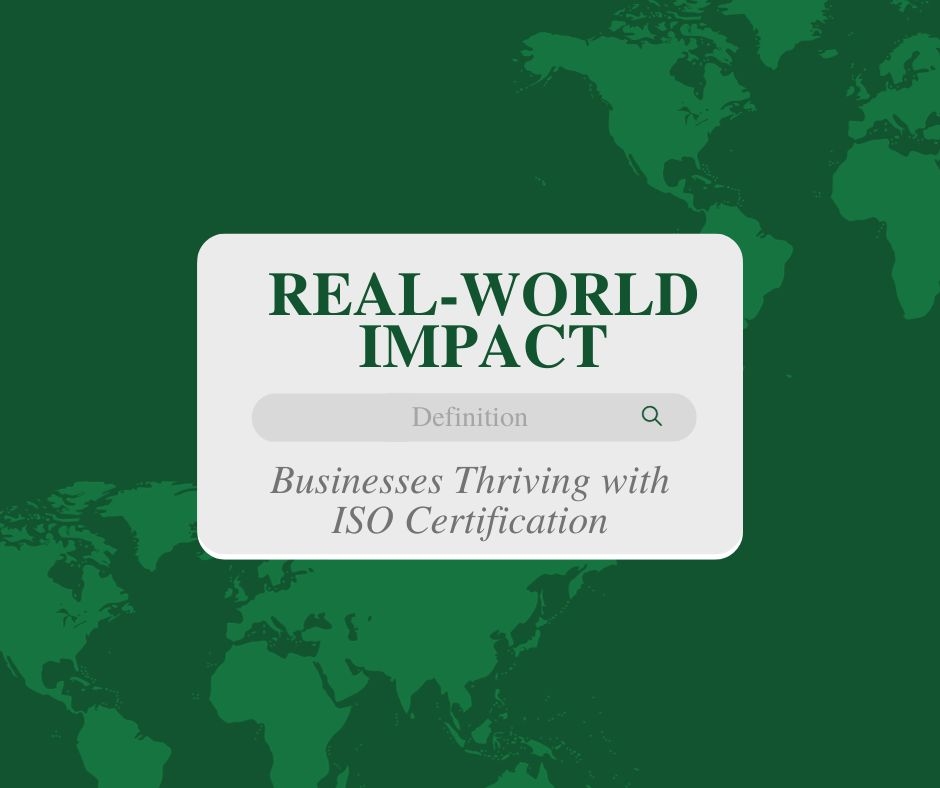ISO (International Organization for Standardization) certification stands as a testament to a business's dedication to quality, excellence, and adherence to globally recognized standards. Many businesses have reaped significant benefits from obtaining ISO certification, experiencing tangible improvements across various aspects of their operations. In this article, we will explore examples of businesses that have greatly benefited from ISO certification, and the specific improvements they have experienced.
Toyota: Revolutionizing Automotive Quality
Toyota, a pioneer in lean manufacturing and continuous improvement, is a prime example of a business that has seen remarkable benefits from ISO certification. With ISO 9001 certification in Quality Management Systems, Toyota elevated its commitment to quality and customer satisfaction. The implementation of standardized processes and procedures led to a drastic reduction in defects and improved overall product quality. As a result, Toyota solidified its reputation as a leader in automotive quality and efficiency.
Siemens: Leading in Environmental Responsibility
Siemens, a global powerhouse in electrification, automation, and digitalization, obtained ISO 14001 certification for Environmental Management Systems. This certification has allowed Siemens to effectively manage its environmental impact. By implementing sustainable practices, Siemens reduced waste, minimized resource consumption, and achieved notable energy savings. This not only demonstrated Siemens' commitment to environmental responsibility but also resulted in significant cost savings and enhanced brand reputation.
Microsoft: Protecting Sensitive Information
Microsoft, a technology giant, recognized the importance of safeguarding sensitive information. By obtaining ISO 27001 certification for Information Security Management Systems, Microsoft demonstrated its commitment to protecting customer data. The implementation of robust security measures not only fortified Microsoft's defenses against cyber threats but also instilled trust among customers and partners. This certification significantly bolstered Microsoft's position as a trusted provider of secure digital solutions.
Boeing: Elevating Aviation Safety
Boeing, a leader in the aerospace industry, holds ISO 9001 certification for Quality Management Systems. This certification has had a profound impact on Boeing's operations. By adhering to rigorous quality standards, Boeing enhanced its product reliability and safety measures. The standardized processes also streamlined production, leading to increased efficiency and reduced costs. This, in turn, positioned Boeing as a global leader in aviation safety and innovation.
Procter & Gamble: Focusing on Consumer Safety
Procter & Gamble (P&G), a multinational consumer goods corporation, achieved ISO 22716 certification for Good Manufacturing Practices (GMP) in cosmetics. This certification ensured that P&G adhered to strict quality and safety standards in the production of cosmetics and personal care products. By implementing GMP principles, P&G not only enhanced product safety but also gained a competitive edge in an industry where consumer trust is paramount.
Johnson & Johnson: Prioritizing Occupational Health and Safety
Johnson & Johnson, a global healthcare company, obtained ISO 45001 certification for Occupational Health and Safety Management Systems. This certification played a pivotal role in ensuring the well-being of employees across the organization. By implementing safety measures and procedures, Johnson & Johnson significantly reduced workplace accidents and injuries. This not only improved employee morale but also reinforced the company's commitment to a safe and healthy work environment.
Conclusion
The examples above illustrate the tangible benefits that businesses can experience by obtaining ISO certification. From enhanced product quality and safety to improved environmental sustainability and data security, ISO certification empowers organizations to achieve higher standards of excellence. By adhering to globally recognized standards, these businesses have not only strengthened their internal operations but also gained a competitive edge in their respective industries. ISO certification serves as a powerful tool for businesses striving to excel in quality, efficiency, and compliance with international standards. It is a testament to their commitment to excellence and their readiness to meet the challenges of a dynamic and competitive global market.



